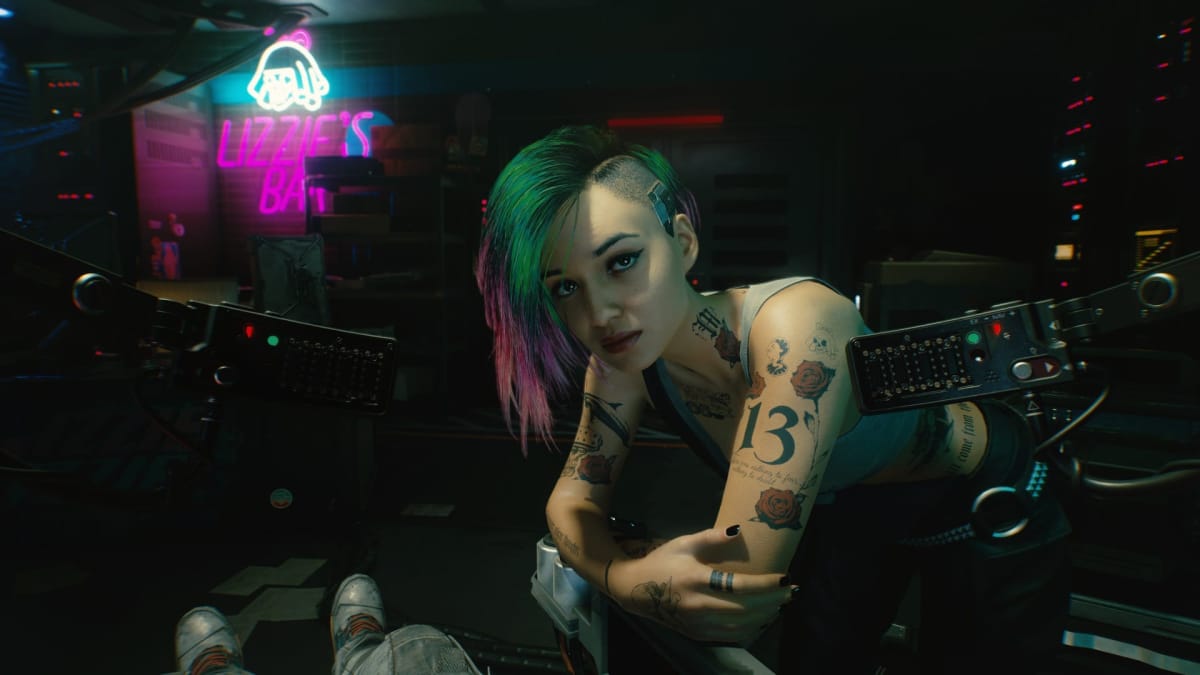As is the case with every major industry, the gaming industry is no stranger to controversies. It's almost depressing how there are so many credible allegations of discrimination and exploitation in this year alone. Few could've predicted that all the problems that exist in the gaming industry would've came to a head in such dramatic fashion with the release of Cyberpunk 2077 though.
Within hours of the game's release, it was apparent that T-posing NPCs, weird collision glitches, and outright crashes would be the tip of the bug-filled iceberg. It took less than a week for one of the most anticipated games of the year to turn into the biggest joke on the internet, with everyone from regular news outlets to shareholders to massive corporations getting in on the action. There really is no modern gaming event that can compare to Cyberpunk 2077's disastrous launch, yet in retrospect, the outcome was almost inevitable.
Indeed, the game's problems started long before it was released. In fact, it's public knowledge that the employees of CD Projekt Red are forced to work gruelingly long hours (i.e. crunch) on a regular basis. This was the case during The Witcher 3's development, it was publicly and officially confirmed during Cyberpunk 2077's development, and it is not a practice that is isolated to CD Projekt Red. It's actually a miracle that the gaming industry hasn't collapsed in on itself with all the developers that have been credibly accused of abusing their workers, yet people are more than happy to look the other way as long as they get good games. It just so happens that this time, it's almost certain that CDPR's working conditions contributed to Cyberpunk's sorry state. As it turns out, forcing people to work for 16 hours per day for months or even years doesn't always result in a better product, regardless of how well you allegedly pay them (see also: review-based bonuses).
Perhaps the cruelest conclusion that one can draw from Cyberpunk 2077's pre-launch is that CDPR's workers sacrificed so much not necessarily because they were passionate about the project, but because of the greed of those who already have more than enough. The game was originally supposed to be ready to play long before the PS5 and Xbox Series X rolled off the production lines. After a couple of delays, it finally settled on a December release date, coincidentally launching within a month of next-gen consoles. The strange thing was that the final delay came after the announcement that the game went gold, a phrase that typically meant that a game was ready for store shelves.
Of course, now it's abundantly clear that Cyberpunk 2077 launched in an unacceptable state and that the last delay wasn't long enough. But why wasn't the game delayed again? After all, CDPR almost certainly knew that the game was nowhere near good to go at that point, especially on the platforms that the game was originally intended for. The simple answer is greed. The same greed that is responsible for annual re-releases, microtransactions, mechanics that greatly resemble gambling, and so much more. Another delay would've meant missing out on holiday sales, missing out on next gen momentum, and missing out on a year where most people were forced to stay indoors due to a pandemic. Rather than lose out on so much potential revenue, CDPR evidently hoped to release the game, then fix it with post launch patches while somehow expecting everyone to turn a blind eye to all the bugs.

Cyberpunk 2077's woes don't stop there though. Initial impressions of the game from major reviewers was almost universally positive. What most people didn't know at the time was that CDPR had some very shady review restrictions in place. No console versions of the game were handed out, and reviewers were prohibited from using their own gameplay footage, which should've been enough to raise red flags across the industry. It seems that two distinct factors prevented this from happening. The first is that Cyberpunk 2077 runs relatively well on high-end PCs, making it near impossible for reviewers to anticipate how the last-gen versions of the game would perform.
The second major factor that almost certainly discouraged reviewers from saying anything negative about Cyberpunk 2077 is an immensely toxic subset of the gaming audience: the fanatics. These are the kind of people who would rush to the defense of a corporation that couldn't care less about them (other than their money), revering corporations in an almost fetishistic manner. When reviewers dared to give Cyberpunk a mediocre score or made note of a segment that can cause seizures, these people then think that it's a reasonable idea to then harass and threaten said reviewers with potentially seizure-inducing videos. The truly crazy part is that this was before the game was released to the general public. In other words, they were defending a game that they literally couldn't have played.
The most famous example of this blind loyalty will almost certainly be the reaction to GameSpot's review by Kallie Plagge. She gave Cyberpunk a 7/10, which is a rather fair score all things considered. Unfortunately, the zealots viewed this as a personal attack, leading to a virtual witch hunt, as if that is a totally rational response. This persisted for days until people actually got to play the game. Suddenly, her review was seen as the gold standard. It wasn't because the fanatics suddenly had a collective epiphany and changed their invariably discriminatory ways. Public discourse surrounding Cyberpunk's launch merely drowned them out in a deluge of drama and memes. The actual people still exist, and it would be naive to think that this won't happen again.
In a rather ironic twist of fate, the largest blow to Cyberpunk 2077 didn't come directly from consumer backlash or anything of that sort. Worker abuse, subpar last-gen ports, toxic fanbases, and shady pre-release coverups didn't stop the gaming industry in the past, so why would it grind to a halt now? If anything, the fact that Cyberpunk's development costs were recouped on Day 0 thanks to pre-orders would likely encourage corporations to continue their destructive practices.

No, the thing that ultimately sealed CD Projekt Red's fate was encouraging people to get refunds from Sony. For those who are unaware, Sony's official refund policy is that if "you have started to download or stream the purchased content you will not be eligible for a refund unless the content is faulty," which basically means no refunds. Sony obviously didn't want to change their (terrible) refund policy since Cyberpunk wasn't "literally unplayable" on last-gen consoles, so they promptly removed the game from their marketplace. Microsoft offered unconditional refunds specifically for the game shortly after, as did a number of other retailers like Best Buy. In all fairness, CDPR has put out a fair number of hotfixes since release, though it would be like trying to stop a flood with a sponge.
In any case, there's something to be said about relying on one massive corporation to slap down a smaller corporation when both parties are guilty of consumer-unfriendly practices. Doubly so when the situation involves a genre where corporate warfare isn't a figurative expression. If that wasn't enough irony for you, GOG (a subsidiary of CD Projekt) decided to add more fuel to the fire when it recently gave in to the demands of "gamers" by removing a game that coincidentally made the Chinese government very unhappy.
Weirdly enough, there is a hypothetical scenario where all of this could've been avoided. Once you get past the bugs, the worker abuse, and the coverups, Cyberpunk 2077 isn't a terrible game. The game probably doesn't live up to most expectations, yet it does deliver a fun, above average experience. Even in its current state, you can clearly see that the actual developers had an ambitious direction that they wanted to take the game in. If CDPR's workers were treated more humanely and management didn't (allegedly) torpedo development out of sheer incompetence, Cyberpunk might've been a genuine game-of-a-generation contender.
On the other hand, it would've almost certainly required another couple of years of development. Alas, that wouldn't bode well with capitalism's love of getting all the money as quickly as possible. So here we are, with a game that is a shadow of what it could have been and an industry that can make dreams come true while crushing those who make it all possible. In retrospect, Cyberpunk 2077 might've been doomed from the start with so much money at play, but it certainly won't be the last high profile failure unless the industry itself drastically changes.
Have a tip, or want to point out something we missed? Leave a Comment or e-mail us at tips@techraptor.net













